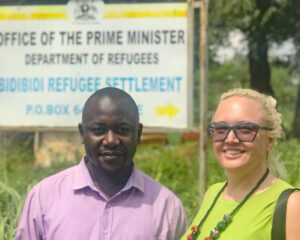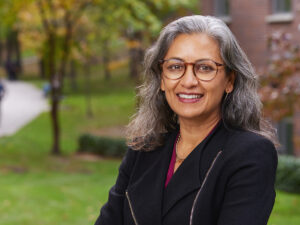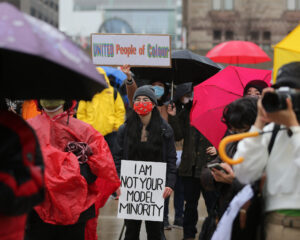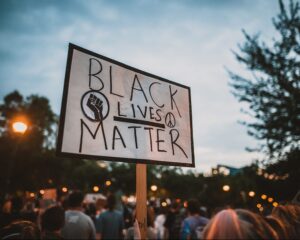Social justice and diversity
 The social justice and diversity field of study will help you develop critical thinking and practice skills to address growing inequality, exclusion, and marginalization within Canada’s diverse population. Courses draw from a range of knowledge to inform social work practice, including structural, intersectional feminist, antiracist, Indigenous, LGBTQ2S+ and anti-oppressive theories and approaches. Core skills that are addressed include critical clinical practice, reflexivity, policy advocacy and research proposal writing.
The social justice and diversity field of study will help you develop critical thinking and practice skills to address growing inequality, exclusion, and marginalization within Canada’s diverse population. Courses draw from a range of knowledge to inform social work practice, including structural, intersectional feminist, antiracist, Indigenous, LGBTQ2S+ and anti-oppressive theories and approaches. Core skills that are addressed include critical clinical practice, reflexivity, policy advocacy and research proposal writing.
Coordinator
Core faculty
Social justice and diversity competencies

Learn about the competencies students will acquire in the Social Justice and Diversity field of study, and the skills, courses and assessment indicators or methods associated with each.
Required courses
- SWK4304H Social Work Policy Practice and Advocacy in the Context of Neoliberal Globalization
- SWK4306H Theoretical Approaches to Defining Social Injustice and Engaging in Social Change
- SWK4512H Research Knowledge for Social Justice
- SWK4606H Diversity, Access and Equity in Social Work Practice
- SWK4702Y Social Work Practicum II
- Two half-credit graduate level electives
MSW Program with Advanced Standing students complete the above courses plus, the compulsory course: SWK4510H Research for Evidence-Based Social Work Practice. SWK4510H must be completed before taking any of the research courses in the field of study. Students take this course in the first terms of the MSW Program.
Related elective choices
Listed below are some examples of courses frequently taken by SJ&D students.
- SWK4210H Promoting Empowerment: Working at the Margins
- SWK4629H Social Work Practice with Aboriginal Peoples
- SWK4643H Special Topics – Narrative Therapy
- SWK4658H Social Work with Immigrants and Refugees
Practicum examples
- Aboriginal Mental Health & Addictions Program, Anishnawbe Health Toronto
- Access Alliance Multicultural Health and Community Services
- Agincourt Community Services Association
- Bain Avenue Cooperative – Kitchen Project
- Bond Child and Family Development
- Canadian Centre for Victims of Torture (CCVT)
- Carefirst Seniors and Community Services Association
- Centre for Addiction and Mental Health (CAMH)
- Children’s Aid Society of Toronto
- Family Service Toronto
- Flemingdon Health Centre
- LOFT Ministry of Health and Long-Term Care
- Mount Sinai Hospital
- Native Men’s Residence
- North York General Hospital
- Ontario Ministry of Citizenship and Immigration
- Safehaven
- Scarborough Women’s Centre
- Schizophrenia Society of Ontario
- The Stop Community Food Centre
- Toronto Catholic District School Board
- York University Counseling Services
Please note that practicum opportunities depend on availability and vary each year.
Career prospects
MSW graduates from the Social Justice & Diversity field of study work in a range of settings including health and mental health, education, social support, child and family services, disability assistance, criminal justice, immigrant settlement, substance use, housing, gerontology, and Aboriginal services. The majority of MSW graduates in this field of study work in community-based, not-for-profit organizations, government or public work settings, community-based health centres, and public education. Specific job roles and responsibilities of graduates from the Social Justice & Diversity field of study include: direct practice (e.g. counseling, case management), community development, advocacy, administration, project management, communication, and research. MSW graduates usually start in front-line, contract positions.
What social work skills can I expect to gain from this field of study?
Social Justice and Diversity fosters critical thinking and critical practice skills to address social inequality, exclusion and marginalization within Canada’s diverse population. Courses in this field of study draw from a range of critical social work knowledge including: structural, feminist, anti-racist, Indigenous, and antioppressive theories and approaches. Students will explore historic, contemporary, and transnational dimensions of oppression towards fostering social change, equity, and empowerment. Working from a social justice and anti-oppressive lens, students will develop core skills related to observation, assessment, self-awareness, critical thinking, oral and written communication. Students will also learn skills related to intergroup dialogue, advocacy, community mobilization, policy analysis and policy advocacy; and research proposal writing. Critical reflexivity and praxis are key elements.




